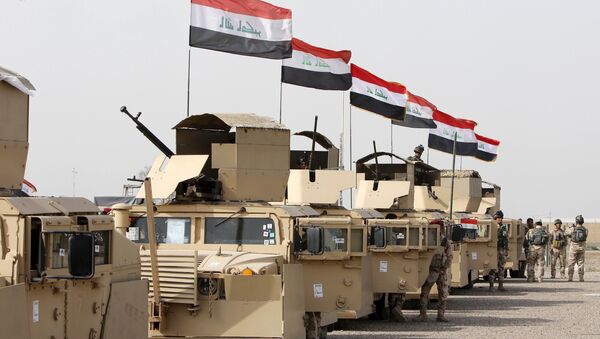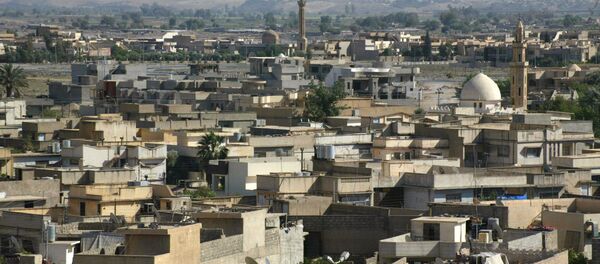Iraqi News quoted a statement Dorrian released saying the system, called the "Drone Defender," "is well developed and capable to monitor and bombard the drones used by [Daesh] against Iraqi and coalition forces."
He explained that Daesh "is usually using drones against the coalition’s troops; these drones are small-sized and available in markets, and do not represent a threat to the coalition’s forces."
Dorrian added that a dozen Iraqi military battalions are preparing to retake Mosul from Daesh, which has controlled the northern Iraqi city since 2014. Baghdad has established 20 camps to house the people who are expected to be displaced once the battle begins.
A day earlier he claimed that there have been no US casualties from Daesh’s drone strikes, though Iraq has sustained many such attacks, but did verify that two French troops were injured October 2 in Erbil, the capital city of Kurdistan, an autonomous region in northern Iraq, when a drone they had brought down exploded. Two Kurdish Peshmerga soldiers were killed in the same explosion.
On Friday 58 people were executed in Mosul for being connected to an attempted rebellion against Daesh. The leader of the uprising intended to betray the terrorist group and give control of the city back to the Iraqi government.
Sabah al-Numani, Iraqi Counter-terrorism Service spokesman, said, "Those were Daesh members who turned against the group in Mosul … This is a clear sign that the terrorist organization has started to lose support not only from the population, but even from its own members."
Mosul had a pre-war population of about 2 million people, and is roughly five times larger than any other city currently under Daesh control. The jihadists have employed child spies, dug tunnels and laid booby traps in preparation for the imminent conflict.




